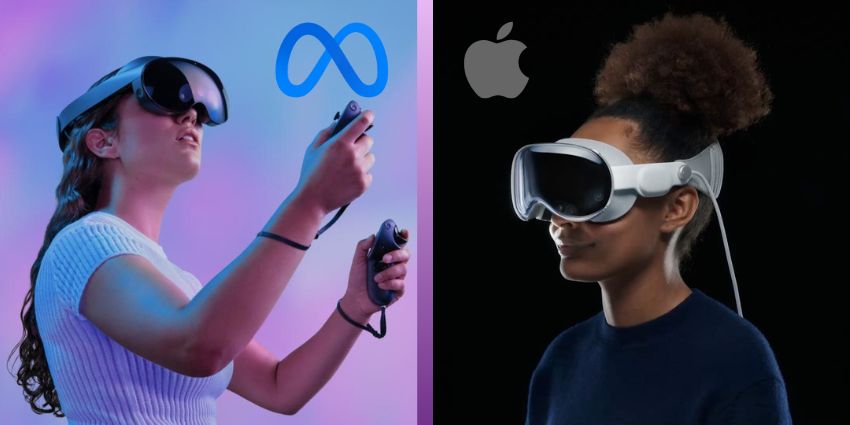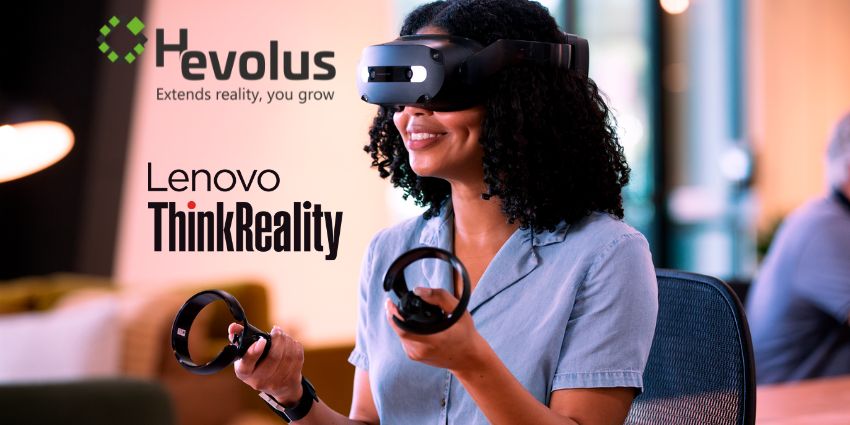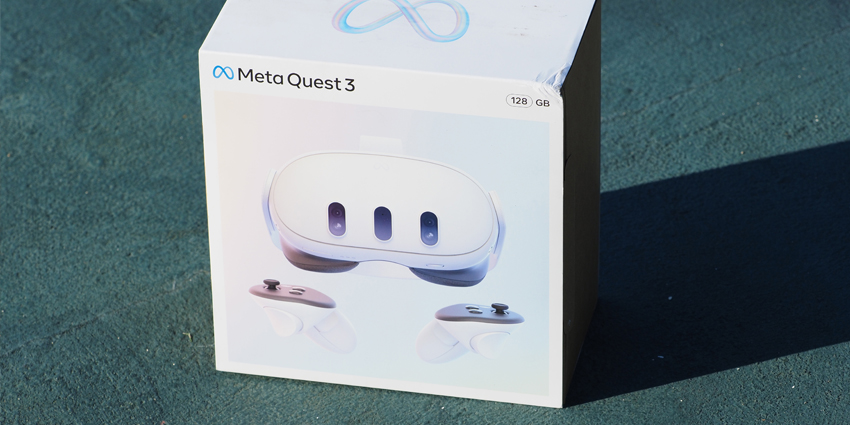Recently, a big piece of news in the XR industry was the announcement that Samsung would enter the XR device marketplace. According to recent reports, the upcoming Samsung headset will have a microOLED display, eight tracking cameras, a ToF sensor, voice commands, eye tracking, and hand tracking features.
Additionally, given Samsung’s partnership with Qualcomm, it is highly likely that the device will contain Qualcomm’s latest XR2+ Gen 2 Platform, which was developed in collaboration with Samsung and Google.
Since Google is also involved in the development process, we may see the integration of genAI technology on the Samsung headset, which is made possible by the XR2+ Gen 2 Platform’s support for AI-ready wearables.
Following the announcement and release of Vision Pro, major technology vendors are increasing their investments in XR products, services, and solutions.
Another big company joining the XR device marketplace is LG, which went into a strategic partnership with Meta. LG is another company with consistent rumblings about joining the market, with confirmation coming following the Vision Pro debut.
Moreover, a number of the recent technology giants entering the XR device marketplace share a background in transitioning from smartphones to XR devices. However, the XR marketplace isn’t just headsets; end devices that leverage spatial data include smartphones, computer monitors, automated cars, and robotics—any form of hardware translating spatial XR data into an end-user experience or solution.
The influence of such large technology firms entering the XR marketplace could be vast, and last week, XR Today hosted various leaders in the enterprise XR space to discuss significant trends across major players.
Joining the discussion:
- Amy Peck, CEO of EndeavourXR
- Jay Latta, Speaker and Founder of The Fusionists
- Kevin O’Donovan, Co-Chair VRARA Industrial Metaverse & Digital Twin Committee, VRARA
- Jennifer Wolf, Executive Officer, Learning Technology Standards Committee at the IEEE
Samsung and LG Set to Enter XR Device Marketplace
Amy Peck noted that many industry giants’ investments in XR devices come hot on the heels of the Apple Vision Pro, “which spurred a lot of interest and, frankly, [became] the competition monster. But that’s a good thing,” Peck remarked.
Amy also added:
But as good as the Apple Vision Pro is, this is still a 1.0 version, and it signals that we are on this path – there’s no turning back. Also, this idea of mixed reality or spatial computing or whatever we want to call it is going to be far more ubiquitous than VR is going to be. So it makes sense for these companies. It’s a long road to get these devices out. – The evolution is moving slowly, but I think now this competition is going to ratchet it up.
According to the CEO of EndeavourXR, the optics and tracking of new XR headsets are improving. Moreover, emerging products have 5G, better network connectivity, and content – the “ingredients that start to make this actually occur.”
“It’s good news all around; I don’t find it that surprising; we’re going to see some other players start to enter the space,” Peck noted.
Jay Latta said that following rumours, the Vision Pro became a “catalyst that accelerated everything a bit more; Apple has set a benchmark everyone was observing it.”
Everyone is trying to “co-develop and set up their own position in this market,” Latta said, with Samsung entering a components partnership with Qualcomm, leveraging its most recent chipset.
On LG, Kevin noted that the firm is already a “huge player” in the XR space. Kevin also noted:
They’re involved in all parts of the market. When you dig into them, they make screens and the components. They’ve also had different glasses for years. They may not have been the top seller, but they’re not new to this world.
Keeping Focus to Ensure Enterprise Adoption
With hardware investments and broader use cases of spatial data covering parallel emerging technologies increasing, the speakers noted how vendors and developers must continue to understand and consider the end-user and their use cases.
Jenniffer explained:
To date, we’ve been focusing a lot on the hardware and even the software to some extent, and maybe not as much on the person, which is a critical part of any XR experience. I’m really excited about some of these collaborations and the advancement in this phase because it gives us more of an opportunity to track and deliver a unique experience that changes people’s lives.
Amy also expressed how the industry should continue to “look at the human-centric experience.” Peck explained how audiences “haven’t cared about these devices because they’re cumbersome, they’re hard to get into, and they’re hard to get up on the network; a lot can go wrong.”
Jen highlighted how many different XR applications deliver various solutions for various end-users and unique working environments.
Jenniffer said:
I come from energy and mining, where there are a couple of different problems. One, we have explosives in the environment, so we need devices that are zone rated. [Another] problem in the mining space is we have a lot of dust. So there are all these different pieces that come with the environment that we haven’t necessarily solved yet. – It’s not going to be one device; it’s going to be a multitude of devices for different applications. The goal really should be, once again, that the human has a continuous experience regardless of how they’re engaging in an immersive world.
Will Major Partnerships Offset XR’s High-Risk/High-Cost Marketplace?
Jay noted that XR developments are getting expensive. As the technology emerges, new costs and time investments will also appear for vendors and end users. New frontiers come with investment and risk, and XR is no different. Recently, LG partnered with Meta, Qualcomm is partnering with Samsung and Google, and many firms are approaching the industry in groups to manage the hurdles involved.
Jay explained:
All these developments are becoming so expensive, and no one knows what direction you should go. Setting up partnerships, you see the Qualcomm and Samsung partnership. So, of course, LG needs someone as well, and Meta needs someone as well. – Currently, in these uncertainties, they partner because they are simply sharing the risk.
However, Kevin also noted how a device’s success doesn’t just come down to the hardware and its profitability -“It’s how do I feed it?” Kevin noted.
Kevin said:
Apple might have done a clever trick with their camera. You can record it on your iPhone and watch it on your headset. Creating Consumption.
For enterprises, up-to-date content is critical. With tools such as NVIDIA Omiverse recently debuting on Vision Pro, accessible, immersive content is proving key for adoption for consumers and enterprises – giving the end user a reason to leverage the headset and its spatial data.
Kevin noted that one of the challenges of creating VR or AR training comes when digitizing a work environment or other assets for use in a training solution. After an asset is recorded and sent to a third-party developer for digitization, it could come back “three or four months later.” In that time, a busy workplace can easily change – promoting real-time digital twins.
Kevin added:
Siemens, ABG, Vernon, everyone is talking about it. We’re just building digital twins now—digital representations. So, there are two things happening in parallel. We need all the new cool devices, but we gotta get the data. We’ve got to get the digital twins. Over the next three or four years, we’ll see a lot of changes.
Meta to Delete Oculus Data and Accounts
Meta is set to delete all Oculus accounts and data. With many new vendors entering the market, it’s easy to forget the Meta Quest portfolio’s start as Oculus, as the firm was purchased by then Facebook and the social media firm broadened its business goals to take over the VR space.
Following a busy few years under the new Meta banner, the firm has transitioned all its Oculus operations. Some see this news as representing broader technical implications for legacy devices and user data. However, it’s also interesting to think this is probably the last real breath of Oculus.
Jenniffer expressed various thoughts towards what account removals mean for users, stating:
[What does it mean] in terms of the value of being an early adopter in the space? What does it mean with regard to my data? I think it also brings up an interesting piece about data ownership that I think is going to become even more prolific as we move through this journey together. Who owns the data? Should users own the data? It gets back to that whole concept around multiple devices, multiple applications, and multiple pieces of software, specifically for consumers, but also for people who are using XR technology to learn new skills, to demonstrate the skills that they’ve gained in immersive experiences.
Jenniffer also noted that from the IEEE’s and “my personal perspective, we are huge advocates not only around the interoperability of the data but also the transparent nature of the data and, more specifically, user ownership.”
Wolf said:
There’s something where users can download some [Oculus] data, but I’m not entirely sure interoperability wise what that means. I think it’s disappointing that we’re not necessarily valuing users’ access to their own data.
Jay stated that he is expecting that the European Union, in roughly the next five years, will “stop such experiments.” If a firm discontinues a product, it should “guarantee” customers can still use it.
Jay added, “you then read other headlines like Meta will start collecting anonymized data about Quest headset usage; this is the next thing.”
Jay noted:
This is quite a dangerous development. Especially when we look back to when they reframed or renamed themselves Meta, where there was a promise of interoperability and multimodality, this is simply a lie, period.
Amy also noted how an enterprise economy exists around managing user data, “we have our own database,” Peck added.
Moreover, Amy added:
It’s a database query and a request for data. It should have a time to live. This is such a massive amount of data; if we can create safeguards and mechanisms where if we do release data for a specific purpose, it doesn’t live on that server in perpetuity.
On the other hand, Kevin explained how, for Meta, the delegation makes “logical sense” as the firm moves towards more enterprise adoption. For Meta, it’s to “get rid of a parallel ecosystem.”







